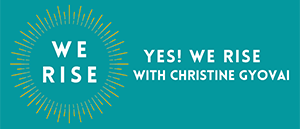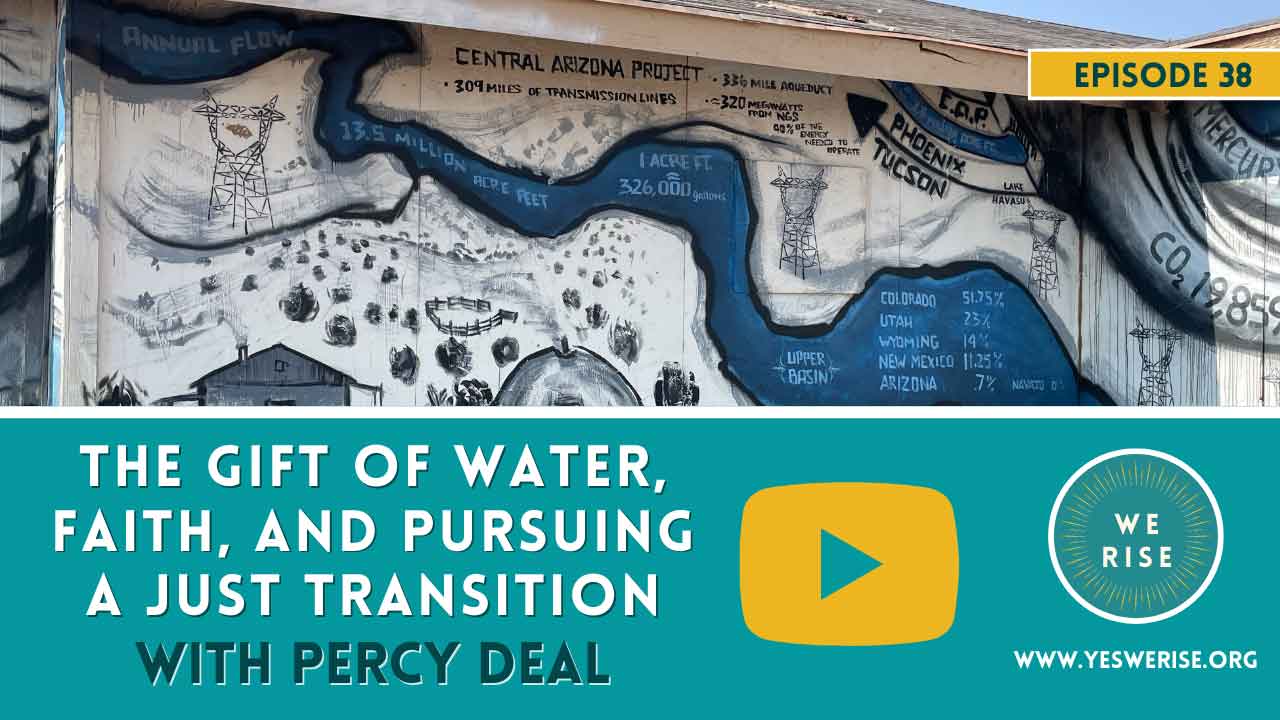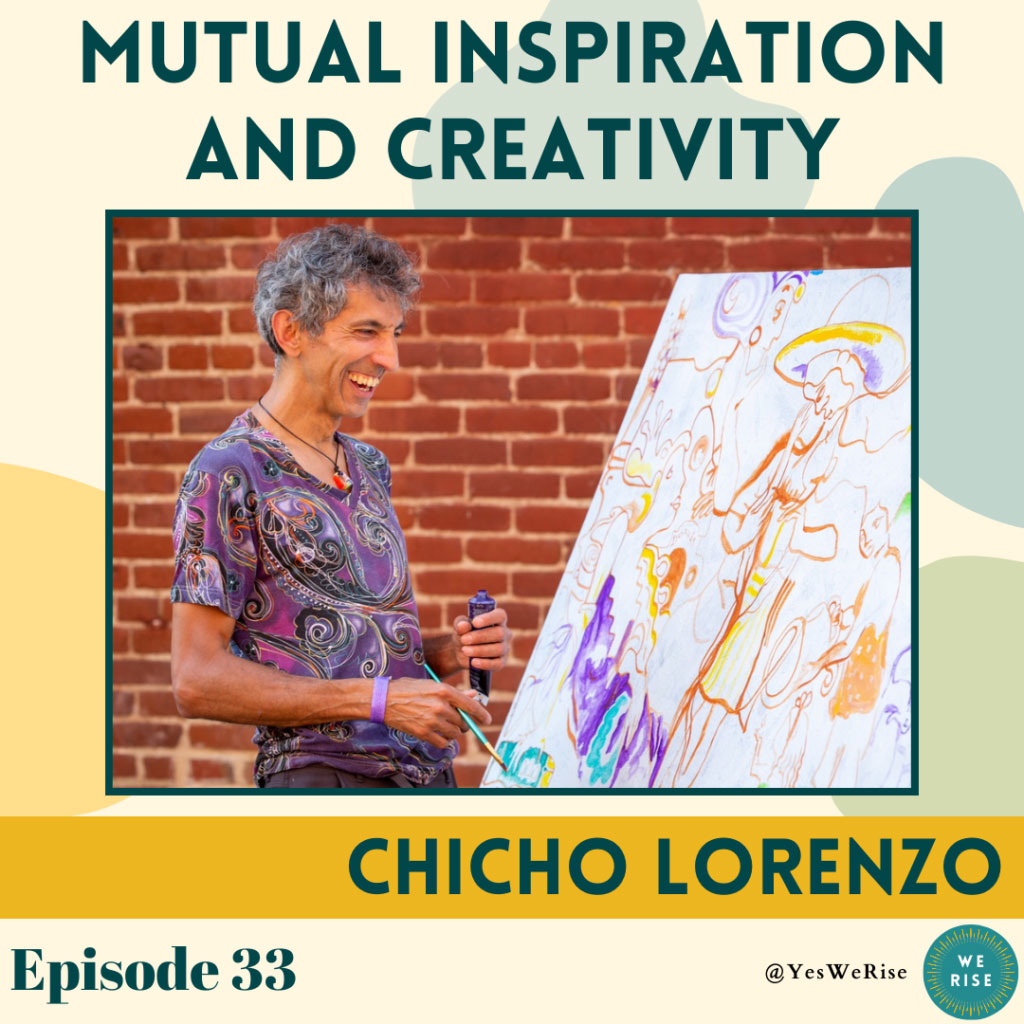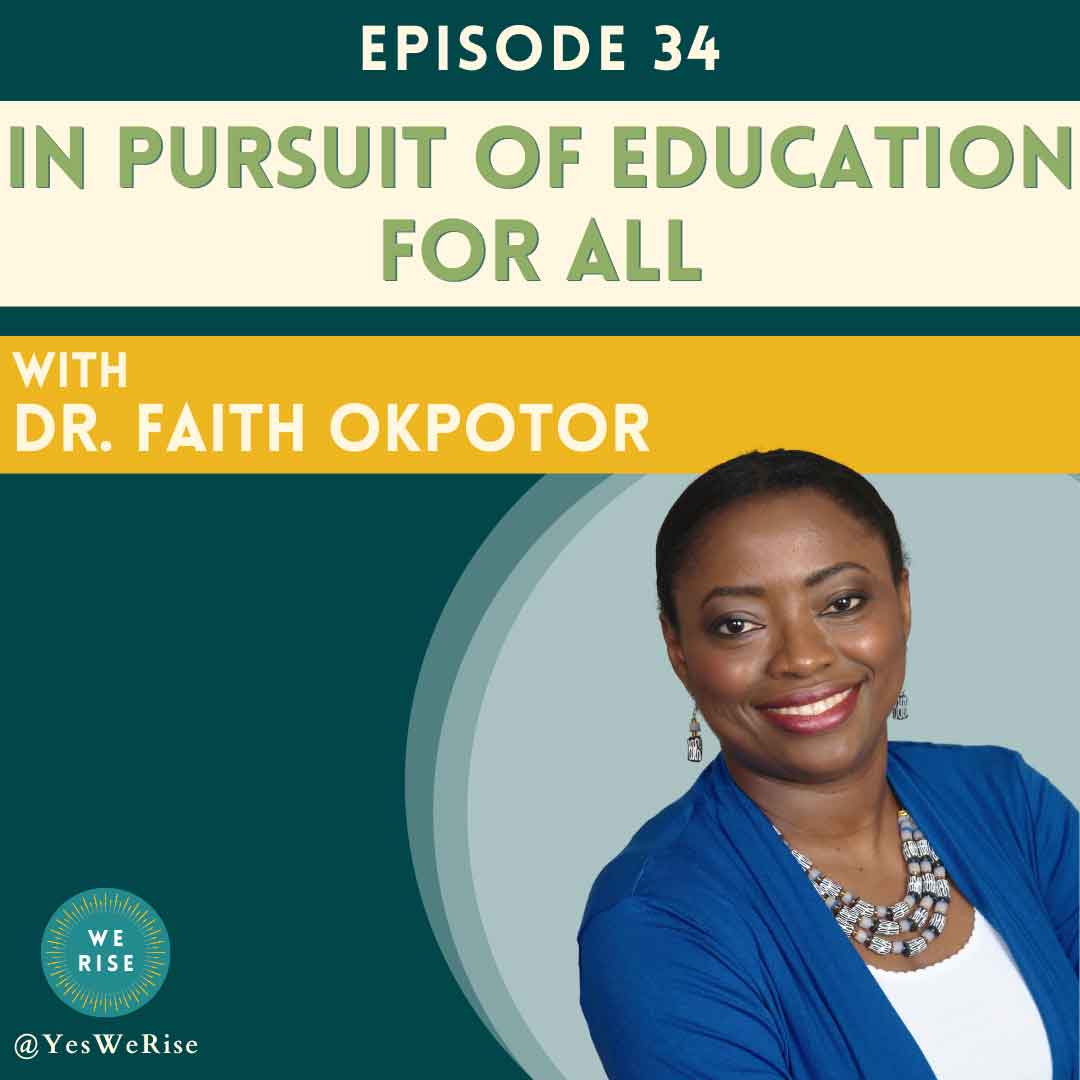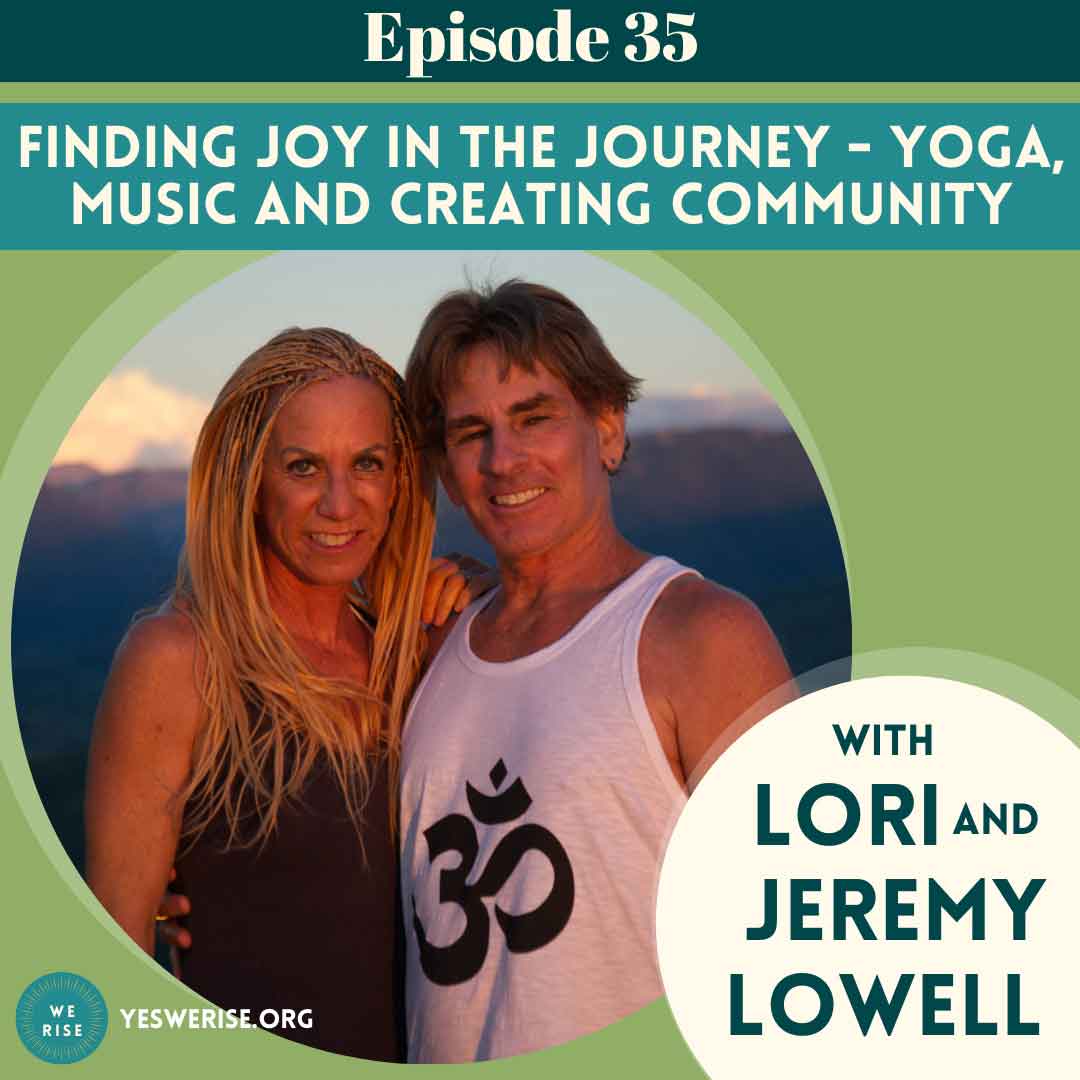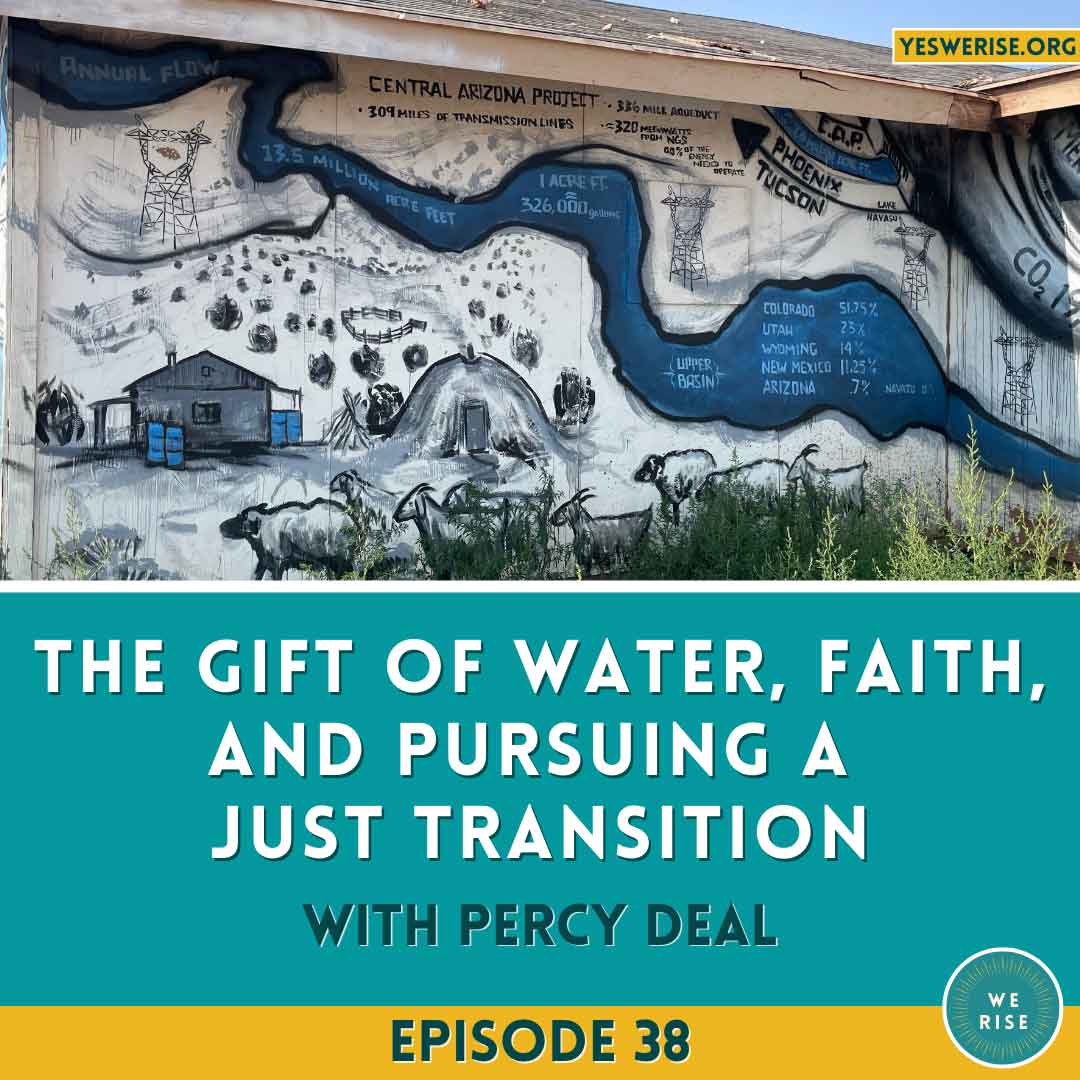
Episode 38:
The Gift of Water, Faith, and Pursuing a Just Transition with Percy Deal
Listen to the podcast on your favorite platform:
Apple Google Play Stitcher Spotify Amazon Music
Episode 38 Description
Percy Deal is a member of the Diné (or Navajo) Nation. He’s a rancher and a community advocate from Black Mesa, Arizona, and deeply involved in local community and government issues for the last 45 years. He continues to use his expertise in educating and advocating for community transition on Black Mesa.
Christine had the opportunity to sit down with Percy and learn about the very real challenges many Diné community members face, and why creating an equitable transition in Black Mesa is a core issue and need. Lean in as Percy shares words of wisdom and offers a glimpse of the future that many additional communities will face if the current circumstances are not addressed.
Thank you for tuning into the Yes! We Rise Podcast. You are part of this collective resilience!
Download the show Notes
find this episode on youtube
Key takeaways
Seeking a just transition
Several years ago, Christine met Diné activist Nicole Horseherder. She works for equity and justice for the Navajo tribe of Black Mesa, Arizona, and is the director of Tó Nizhóni Ání. Nicole was a guest on the podcast (check out Episode 19 to hear our conversation!) and she recently introduced Christine to another member of the Diné Tribal Nation, Percy Deal.
Percy has been deeply involved in local community and government issues for the last 45 years, and educates and advocates for community transition on Black Mesa. His work with others has been largely around the Navajo Generating Station, which was the largest coal fired power plant in the western United States and closed a few years ago.
When Peabody Coal acquired a lease for land on Black Mesa to mine and use an aquifer, the water levels dropped dramatically. Tens of billions of gallons of potable water were used to extract, clean, and transport coal mined in a region with very low rainfall. This resulted in the aquifer drying up.
The Navajo Generating Station held significant economic importance to tribes, but at a high cost to the surrounding land and water. With its recent closure, many Diné activists have been working to ensure a just transition for workers and the surrounding communities.
But what is a just transition?
A just transition means that the transition from what the economy had relied on to what it will be moving forward is fair, just and equitable. It also must continue to provide life sustaining jobs, health, and equity for community members AND the environment.
In 2018, the Navajo Generating Station paid $40 million dollars to the Navajo Nation, as well as millions to the Hopi. The utility company Arizona Public Service pledged $144 million dollars for transition assistance, economic development and electrification for the Navajo Nation, Hopi tribe, and communities near the Cholla Power Plant and Joseph City, Arizona. This is the largest amount pledged for an equitable transition by a utility company in the United States, which is exactly what Percy, Nicole, and others are fighting so hard for!
Water is a precious living resource
Just over fifty years ago, the Navajo Nation Council signed a lease, giving Peabody Coal access to 64,000 acres of land. The result was devastation to their water supply, landscape, vegetation, and animals.
So how does a major industry gain access to so much land knowing the impact it would have? In Percy’s understanding, it was the result of misleading information to folks in a decision-making capacity with little to no education about what would really be at stake in the future.
When Peabody Coal, the Federal Government, and the Interior Department went before the Navajo Nation Council in 1969, they handed the council a 200-page lease contract. Yes, they offered revenue and jobs. However, they failed to highlight or possibly mention the immense impact it would have on the community, their water, and the environment.
Moving forward to present day, the Navajo Nation has been ravaged by the consequences of Peabody. Even with the end of the lease, the environmental impact has left very little resource to water. Percy drives 20 miles to fill up two 55-gallon barrels with water when his other two are running low. Other community members don’t have any transportation and rely on neighbors for help.
To the Navajo Nation, water is a precious living matter. It is a part of their religion. They maintain a deep connection to water, and had the people understood the devastation that would occur due to the coal mining and the aquifer, Percy is certain they would never have signed the agreement.
Maintaining faith in the Navajo Nation
In 2020 with the rise of the pandemic, the ability to maintain basic hygiene practices, including consistent hand washing, was unavailable to the Navajo people, as the ability to access water has been so limited. Two years ago, Percy submitted a grant proposal seeking funding for 60 homes to receive running water, bathrooms, and a water line. To date, he has yet to hear back about this funding request.
Percy said that from the west coast to the east coast, from the south to the north, there’s something going on every single day. There’s drought, there’s hate, there is flooding, tornadoes, earthquakes, and wildfires.
Climate change plays a major part in this. We have to shift in a big way. It’s not just the Navajo that needs to be changed; it’s everywhere.
In Percy’s words, “Everybody has a faith. They believe in a certain religion. I would just urge them to do what they can… there needs to be restoration everywhere. And we need to elect leaders that do care.”
Electing leaders who care about the future is key in making revitalizing choices for the community. The Navajo people often speak of their children, grandchildren, and those to come in 100 years or 200 years.
When officials go into the community and tangibly experience what the people are experiencing, they will understand what is needed, informing what resources, support, and policies will offer lasting positive change both locally and at the large scale.
A Call To Action
For lasting change to occur, we must all do our part. Make your voice heard. Contact elected leaders, the Navzajo Government, the Department of the Interior, and Congress.
Write letters demanding that they visit the Navajo Nation, to experience the current circumstances Percy and his greater community are facing everyday. Implore that they see firsthand their homes, their land, their transportation.
And vote! We must elect officials that are for the people, not the industry. We need advocates for restoration, fighting climate change, and providing resources to the Navajo Nation and all communities.
You have the power and the ability to create much needed change! Thank you for your support.
Notable quotes from Percy
“When you have little or no water, life comes to an end… And that’s what we are experiencing right now. The drought, the climate change, we are experiencing and seeing the climate and the weather like we’ve never seen before and it’s affecting every creature, plants and animals, and people.”
“We’re getting less rain. Less snow. All of the springs have disappeared. And if they’re going to come back, it’s gonna take years, maybe 20 or 30 years before we see those springs again.”
“Water is a precious item to us. It’s part of our religion. We talk to the water, whether it’s standing water, flowing water, or a lake. We pray to the water. To us, water is living matter.”
“There’s got to be a better way for us to take care of Mother Earth and take care of the water. It’s the most precious thing in everybody’s life, everybody. In all living matters, all living creatures, water is so important.”
“Climate change plays a major part in this whole thing. I mean, we all have to understand this. And we have to change our ways in a big way. It’s not just here on the Navajo that needs to be changed; it’s everywhere.”
LINKS/RESOURCES MENTIONED
Learn more about Percy Deal and Tó Nizhóni Ání.
If you missed it, tune in to Christine’s interview with Nicole Horseherder on Episode 19.
You can also discover more about the work of the Office of Surface Mining, Navajo Nation Minerals Department, and the Hopi Office of Surface Mining.
The Yes! We Rise podcast features solutions-seekers, change-makers, and those creating a resilient future. We share stories and strategies to inspire action to build resilience and community transformation. To create change, people need to feel like they belong and that they are part of a growing movement. They need to know their voice matters and that they have the inspiration, agency and ability to transform their lives and their communities. They are the key to a resilient future.
From the Navajo Nation to the mountains of Appalachia, incredible work is being done by community members and leaders. Change is often sparked by inspiration: seeing what others have done, especially in similar situations and places. People see that when someone looks like them or lives in a place like theirs, and has created real, true and lasting change, change that will allow their granddaughters and grandsons to thrive — they begin to imagine what might be possible for them. No longer waiting for someone else to come and save them, they realize they are the ones they have been waiting for. But what creates that spark? What creates that inspiration? Learning through stories and examples, feeling a sense of agency and belonging, and getting fired up to kick ass creates that spark.
We Rise helps community leaders and members learn to forge a new path toward creating resilience and true transformation. One person at a time, one community at a time, one region at a time, the quilt of transformation can grow piece by piece until resilience becomes the norm instead of the exception. Together, we rise.
Links/resources mentioned
Learn more about Percy Deal and Tó Nizhóni Ání.
If you missed it, tune in to Christine’s interview with Nicole Horseherder on Episode 19.
You can also discover more about the work of the Office of Surface Mining, Navajo Nation Minerals Department, and the Hopi Office of Surface Mining.
The Yes! We Rise is produced by Dialogue + Design Associates, Podcasting For Creatives, with music by Drishti Beats.
Follow Yes! We Rise on Facebook and Instagram.
Please rate, review, and subscribe to the podcast so we can continue spreading our message far and wide. Find our email list at the website: www.yeswerise.org. Thanks for listening.
The Yes! We Rise podcast features solutions-seekers, change-makers, and those creating a resilient future. We share stories and strategies to inspire action to build resilience and community transformation. To create change, people need to feel like they belong and that they are part of a growing movement. They need to know their voice matters and that they have the inspiration, agency and ability to transform their lives and their communities. They are the key to a resilient future.
From the Navajo Nation to the mountains of Appalachia, incredible work is being done by community members and leaders. Change is often sparked by inspiration: seeing what others have done, especially in similar situations and places. People see that when someone looks like them or lives in a place like theirs, and has created real, true and lasting change, change that will allow their granddaughters and grandsons to thrive — they begin to imagine what might be possible for them. No longer waiting for someone else to come and save them, they realize they are the ones they have been waiting for. But what creates that spark? What creates that inspiration? Learning through stories and examples, feeling a sense of agency and belonging, and getting fired up to kick ass creates that spark.
We Rise helps community leaders and members learn to forge a new path toward creating resilience and true transformation. One person at a time, one community at a time, one region at a time, the quilt of transformation can grow piece by piece until resilience becomes the norm instead of the exception. Together, we rise.
